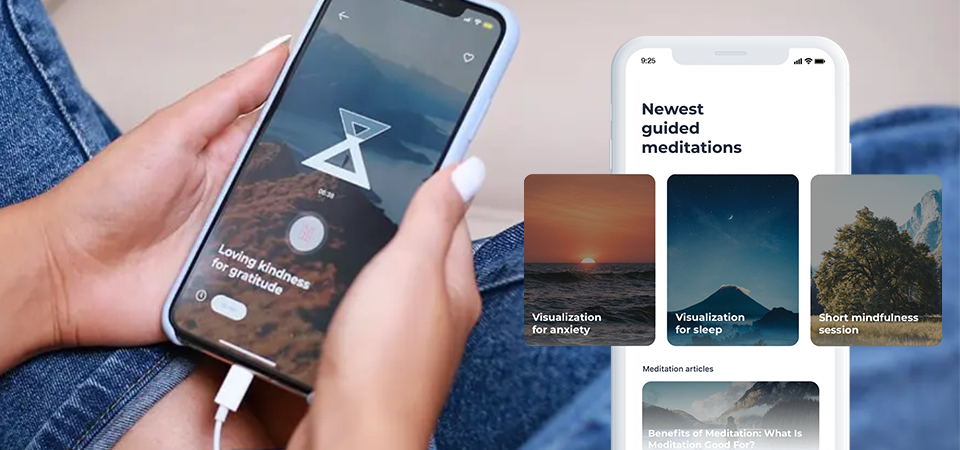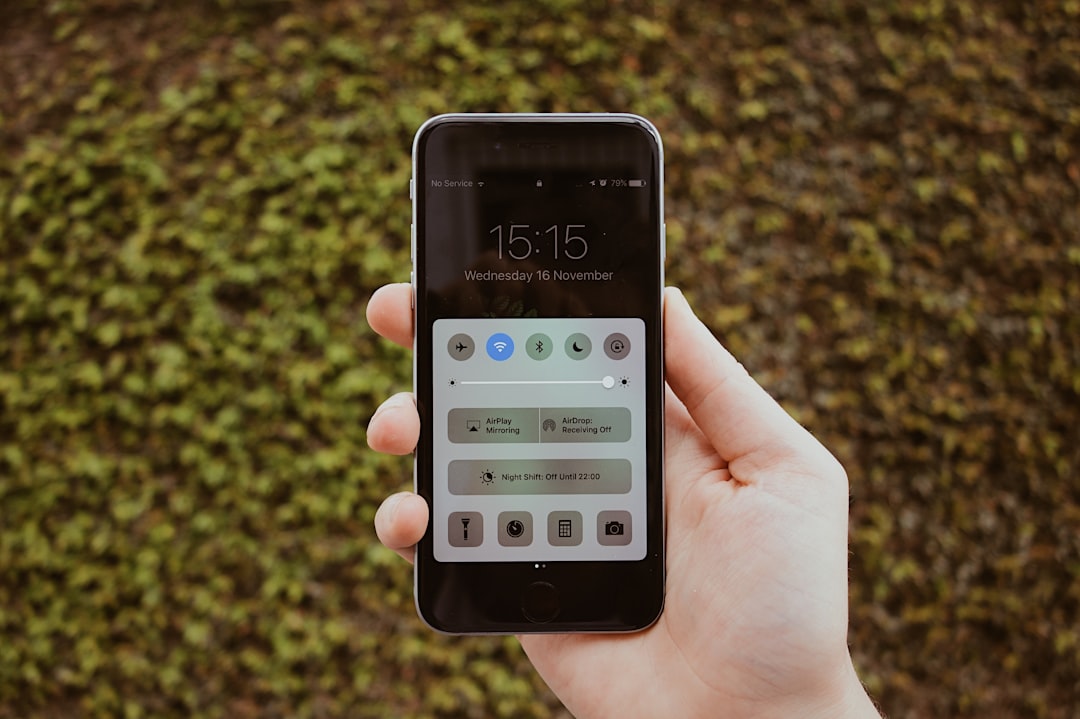When I first learned about my ADHD diagnosis, I felt overwhelmed by the sheer number of management strategies out there. While therapy and medication play crucial roles, I discovered that the best apps for ADHD can be game-changers in creating structure, maintaining focus, and building sustainable habits. These digital tools don't replace professional treatment, but they've become invaluable companions in my daily routine, helping me navigate the unique challenges that come with an ADHD brain.
The right combination of apps can address different aspects of ADHD – from the scattered thoughts that make focus feel impossible to the emotional regulation challenges that leave you feeling overwhelmed. I've tested dozens of apps over the years, and I've learned that the most effective ones don't try to "fix" ADHD but rather work with your brain's natural patterns.
Meditation and Mindfulness Apps
One of the most surprising discoveries in my ADHD management journey was how much how meditation helps adhd symptoms. The key is finding apps that understand the ADHD brain doesn't always respond well to lengthy, complex instructions.
Declutter The Mind

Declutter The Mind has become my go-to meditation app because it offers something many others don't: guided meditations specifically designed for ADHD. The sessions are structured with clear, simple instructions that don't overwhelm an already busy mind. What I love most is that the app includes shorter meditation options – sometimes 5 minutes is all my ADHD brain can handle, and that's perfectly okay.
The app also features focus-specific meditations that help train your attention without judgment. Instead of fighting against your wandering mind, these sessions teach you to notice when your thoughts drift and gently guide your attention back. This skill translates directly into daily life, helping with everything from work tasks to conversations.
The variety keeps things interesting – crucial for maintaining an ADHD brain's engagement. Whether I need help with feeling overwhelmed, want to work on concentration, or need support with anxiety that often accompanies ADHD, there's usually a relevant session available.
Task and Project Management Apps
Traditional to-do lists often fail people with ADHD because they don't account for how our brains prioritize and process information. The most effective task management apps for ADHD go beyond simple lists.
Todoist
Todoist works well for ADHD because it allows you to break large projects into smaller, manageable tasks. The natural language processing means you can quickly capture thoughts like "call dentist next Tuesday" without getting bogged down in complex categorization systems. The karma system provides the kind of immediate feedback that ADHD brains crave, turning productivity into a game.
Any.do
The voice input feature in Any.do is a lifesaver when you're in the middle of something and suddenly remember an important task. Instead of losing that thought (as often happens with ADHD), you can quickly speak it into the app. The daily planning feature helps create structure without being overwhelming.
Focus and Attention Apps
Apps that specifically target attention and focus challenges can be particularly helpful for the ADHD brain, especially when they're designed with neurodivergent users in mind.
Forest
Forest gamifies focus in a way that appeals to ADHD brains. You plant a virtual tree and watch it grow during focus sessions – if you leave the app, the tree dies. This visual representation of focus time, combined with the satisfying reward of growing a forest, provides the external motivation that many people with ADHD need. The app also blocks distracting websites and apps during focus sessions.
Brain.fm
This app provides scientifically-backed audio designed to enhance focus, relaxation, or sleep. For people with ADHD who struggle with auditory distractions or need background stimulation to concentrate, Brain.fm can create an optimal acoustic environment. The music is specifically composed to influence brainwave activity rather than simply providing background noise.
Time Management and Scheduling Tools
Time blindness is a common ADHD challenge – we often underestimate how long tasks will take or lose track of time entirely. Effective scheduling apps account for these difficulties.
Clockify
Time tracking might seem tedious, but Clockify helps build awareness of how you actually spend your time versus how you think you spend it. This insight is crucial for people with ADHD who often struggle with realistic time estimation. The app makes tracking simple with one-click timers and automatic categorization.
TimeTune
TimeTune allows you to create color-coded schedules that provide visual structure to your day. Unlike rigid calendar apps, it's flexible enough to accommodate the reality of ADHD life – sometimes tasks take longer than expected, and that's okay. The visual timeline helps with morning routine consistency and transitioning between activities.
Note-Taking and Information Capture
ADHD brains are often full of brilliant ideas, important reminders, and random thoughts that need capturing before they disappear. The right note-taking apps make this process seamless.
Notion
While Notion can become complex, its flexibility makes it excellent for ADHD brains that think in non-linear ways. You can create databases for projects, embed calendars, and link related information in ways that mirror how ADHD minds naturally make connections. The key is starting simple and adding complexity gradually.
Google Keep
Sometimes the best app is the simplest one. Google Keep excels at quick capture – you can jot down notes, take photos, or record voice memos instantly. The ability to set location-based reminders is particularly useful for ADHD memory challenges. The visual, card-based interface works well for brains that think in pictures rather than lists.
Habit Building and Routine Apps
Building consistent habits can be challenging with ADHD, but the right apps provide structure and positive reinforcement without being overwhelming.
Habitica
Habitica turns your life into a role-playing game, which appeals to the ADHD need for stimulation and immediate rewards. You create an avatar that gains experience points and rewards for completing real-life tasks and habits. The gamification provides external motivation while building genuine behavioral changes. You can join parties with friends for additional accountability.
Streaks
This iOS app focuses on building habits through visual chains – each day you complete a habit, you add a link to the chain. The visual representation of progress is satisfying for ADHD brains, and the fear of breaking a long streak can provide motivation on difficult days. The app is intentionally simple, avoiding the complexity that can derail ADHD users.
Making Apps Work for Your ADHD Brain
The most important lesson I've learned about using apps for ADHD management is that the tool is only as good as how consistently you use it. Here are strategies that have helped me maintain app usage over time:
Start with one app at a time – The temptation is to download everything at once, but this often leads to app overwhelm. Choose one area (like meditation or task management) and stick with one app until it becomes habitual.
Customize notifications carefully – While reminders can be helpful, too many notifications can become overwhelming and lead to feeling overwhelmed. Start with minimal notifications and adjust based on what actually helps.
Accept imperfection – There will be days when you forget to use your apps or fall off your routines. This is normal, especially with ADHD. The goal isn't perfection but building systems that work most of the time.
Regular app audits – Every few months, review which apps you're actually using versus which are just taking up phone space. ADHD brains can benefit from simple living principles, including digital minimalism.
Beyond Apps: Creating a Supportive Environment
While apps are valuable tools, they work best as part of a comprehensive ADHD management strategy. Combining app usage with other supportive practices amplifies their effectiveness.
Regular meditation practice, whether through apps like Declutter The Mind or in-person sessions, builds the foundational skills of attention and emotional regulation that make all other ADHD management strategies more effective. Ways to practice mindfulness extend beyond formal meditation into daily activities.
Physical exercise complements digital tools beautifully – meditation after exercise can be particularly effective for ADHD brains that benefit from movement before stillness. Many people find that apps work better when used in conjunction with regular physical activity.
Creating environmental supports, like organized physical spaces and consistent routines, provides the foundation that allows apps to be most effective. Sometimes the best tool for managing ADHD symptoms is ensuring your basic needs are met – adequate sleep, regular meals, and manageable stress levels.
Finding Your Personal App Ecosystem
The best apps for ADHD are ultimately the ones you'll actually use consistently. This might mean choosing the "good enough" app that you enjoy using over the "perfect" app that feels like work. Your app ecosystem should evolve with your needs and life circumstances.
Some people thrive with comprehensive apps that handle multiple aspects of life, while others prefer specialized tools that do one thing exceptionally well. Both approaches can work – the key is honest self-assessment about your preferences and habits.
Remember that apps are tools to support your goals, not goals in themselves. The measure of a successful ADHD management app isn't how sophisticated it is, but how much it improves your daily life experience. Whether that's through better how to calm mind techniques, improved focus, or simply remembering to take your medication, the right apps can make a meaningful difference in living well with ADHD.
Managing ADHD is a journey, not a destination, and the right digital tools can make that journey significantly more manageable and enjoyable. Start with one app that addresses your biggest current challenge, give it time to become part of your routine, and gradually build your supportive app ecosystem from there.







